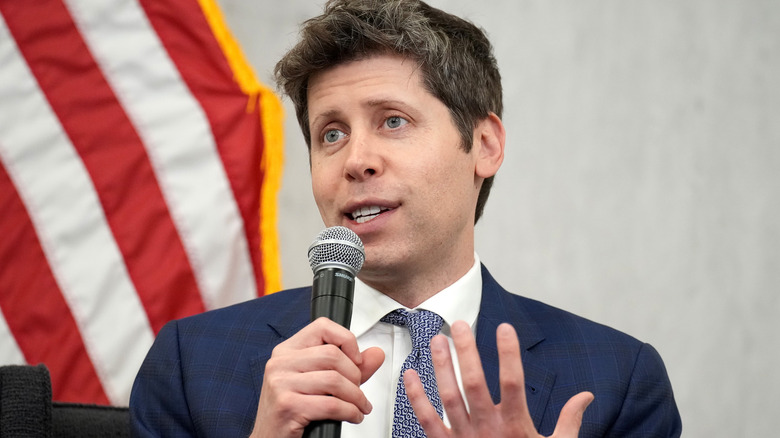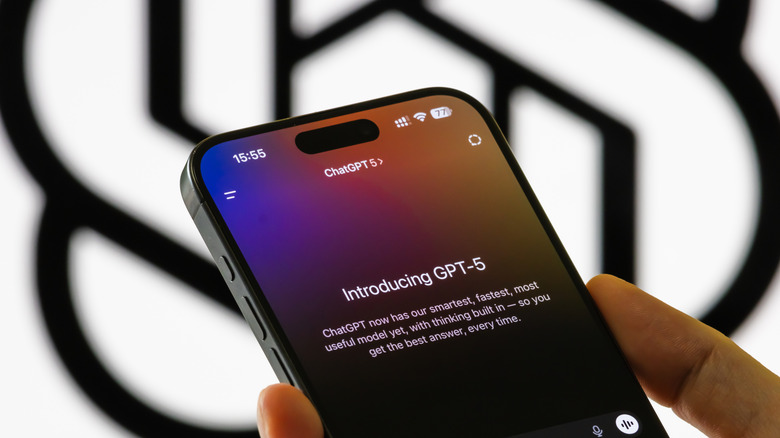Sam Altman Teases Mysterious But Expensive ChatGPT Features Coming Soon
On Sunday, OpenAI CEO Sam Altman posted an update on X teasing new ChatGPT features set to arrive in the coming weeks. These mysterious features will be more expensive to run, so access isn't guaranteed for the cheapest premium subscription, which is the ChatGPT Plus tier that costs $20/month. "Over the next few weeks, we are launching some new compute-intensive offerings," Altman said. "Because of the associated costs, some features will initially only be available to Pro subscribers, and some new products will have additional fees."
"Our intention remains to drive the cost of intelligence down as aggressively as we can and make our services widely available, and we are confident we will get there over time," Altman continued. "But we also want to learn what's possible when we throw a lot of compute, at today's model costs, at interesting new ideas."
It's unclear why the CEO teased the new features over the weekend or what they might be. This wouldn't be the first time that ChatGPT Pro users have received exclusive access to new, compute-intensive features. ChatGPT Operator, OpenAI's first AI agent, is one such example. Also, ChatGPT Pro users were the first to receive access to features like Deep Research and the GPT-4.5 model before they were launched more broadly. As for GPT-5, ChatGPT Pro users have higher usage limits and get exclusive access to the GPT-5 Pro model.
What's the next big thing for ChatGPT?
OpenAI unveiled GPT-5 in early August and has optimized the experience since then. Responding to backlash from users, the company brought back ChatGPT legacy models almost as quickly as it removed them. It also raised limits for GPT-5 Thinking soon after launch. A few days ago, OpenAI delivered an update to GPT-5 Thinking that lets ChatGPT users decide how long the AI model should run its reasoning process in Thinking mode. Interestingly, ChatGPT Pro users have more options than Plus users. Also, OpenAI released GPT-5-Codex last week.
In early September, OpenAI rolled out support for branched conversations in ChatGPT and made the Projects feature available to ChatGPT Free users. A few days before that, OpenAI unveiled GPT-realtime, its "best speech-to-speech model for developers." In addition to rolling out new features, the company has also asked users what they would like to see from ChatGPT in the future. The branched conversation feature is a result of that feedback.
Finally, OpenAI is working on its first ChatGPT hardware, which will require ambient computing capabilities, including recognizing speakers and other details about the user's context. Those might be more resource-intensive features. But would OpenAI launch new ChatGPT capabilities built for a dedicated piece of hardware this far in advance of that product's debut?
Is OpenAI responding to rivals?
The competition didn't sit idly by while that was happening. Google unveiled the new Nano Banana AI image generator, which went viral online before and after the official rollout. The new feature might have helped Gemini become the most downloaded iPhone app a few days ago, dethroning ChatGPT. More interestingly, Google turned Chrome into an AI browser by giving Gemini in Chrome several interesting abilities.
OpenAI has a very capable image generator built into ChatGPT, which went viral earlier this year. The company doesn't have its own internet browser, but it's rumored to be working on one. Still, there's no indication that the GPT-4o image generator will see an upgrade soon, or that an OpenAI browser will launch soon. Even if OpenAI were to release such updates this week, would they qualify as "compute-intensive" capabilities?
OpenAI can't respond to everything the competition is doing when it comes to new AI features. Google also launched the Pixel 10 series in August, unveiling new Gemini capabilities for its handsets. A few days ago, Meta launched new Meta AI smart glasses, including a model that features a built-in display. OpenAI can't match those offerings without hardware of its own. We know from Sam Altman and Jony Ive's teasers in May that the first-generation ChatGPT product will not be a smartphone. Rumors say it will be a portable device that you can keep in a pocket or wear around the neck. Also, that device should be announced late next year, not in the coming weeks.


